The Netherlands has always been a country of mystique to me, especially Amsterdam with its UNESCO World Heritage canal system, the backbone of the country for generations in terms of transport and trade.
I have always wanted to experience Amsterdam and my wish was granted in fall 2018 on my second solo travel to the BeNeLux region. Amsterdam is just as I imagine: beautiful and walkable city, magnificent architecture, picturesque canals and chill ambience. Coming from New York City, a crowded Amsterdam in fall is soothing and bearable.
Related: Amsterdam Culture Sprint in 48 hours
As a Black African of Nigerian heritage, I always play this game with myself where I try to spot another African on my travels, and not another traveller like me. I meet like individuals in London, Brussels, Paris and even have relatives who reside there, but I am fascinated with the history of the African diaspora in the Netherlands.
Prior to this trip, I know very little about the African diaspora in the Netherlands and the former Dutch colonies and experiencing Amsterdam for 48 hours really opened my eyes to this history and the stories of the African diaspora that come with it.
I learn about the African diaspora in the Netherlands and former Dutch colonies via Tropenmuseum in Amsterdam as well as asking questions of Surinamese people I meet in the city and online.
The Dutch played a very crucial role in the Trans-Atlantic slave trade via the Dutch West India Company with jurisdiction over the Slave Coast of West Africa down to southern Africa, the Americas and New Guinea. On my Amsterdam canal tour cruise, it is acknowledged that the Dutch only transported enslaved Africans but never involved themselves in their trade.
That is hard to believe seeing as there are former Netherlands Antilles islands of the Caribbean and Suriname in South America. South Africans know of the Dutch settlers (Boers) who arrived the Cape and spawned descendants that brought forth the inhumanity known as apartheid.
Just as African-Americans are descendants of enslaved Africans brought to North America, the African diaspora in the Netherlands are descendants of enslaved Africans taken to Suriname and the former Netherlands Antilles, and their descendants sold to Dutch officials in the Netherlands for domestic work. This demographic is different from continental African immigration to the Netherlands in recent decades.
African Diaspora in the Netherlands & Former Dutch Colonies
Article Contents
#Taken!
The Dutch are renowned water experts and engineers – I mean, look at their canal systems of locks and dams – so it is no surprise when the Dutch West India Company is founded in 1621 in response to the Spaniards’ trading competition at the time.
Before this, Dutch merchants are very active on the west coast of Africa along with the Portuguese, both of them jostling for alpha status and bragging rights for copper, gold and other natural resources.
Much to my surprise, I learn that the Dutch are present in the Dutch Gold Coast – present day Ghana. I know of British colonial history in Ghana and other Anglophone countries, but the Brits are the last of a long list of Europeans laying claim over the Gold Coast’s resources.
Stick the Brits behind the Portuguese – they built the popular Elmina Castle or Sao Jorge de Mina (St. George of Elmina fort) – Dutch, Danes and even Swedes! Huh!?
Of all the European colonialists I’ve read about since childhood, Swedes are not on the list but there they are establishing a Swedish Gold Coast colony in the 1660s before the Danes snatched it away and incorporated their area into the existing Danish Gold Coast.
Anyway, all this tug-of-war between the European powers over global territories lead to the Dutch capturing Suriname from the British and in return, giving up New Amsterdam (now New York City) to the Brits in the Treaty of Breda. How gentlemanly of them both /s/.
African Diaspora in the Netherlands & Former Dutch Colonies
#Africans in Suriname (Formerly Dutch Guiana)
Suriname is geographically located in South America between Guyana and French Guiana but culturally, it is considered Caribbean along with the other two Guianas. With its ideal tropical climate, Suriname is conducive to the cultivation of cotton, cocoa and other cash crops, which of course require labour.
Remember that the Dutch already have a presence in West Africa – as Dutch Gold Coast – thus they are able to enslave and transport Africans to Suriname, most of whom come from West and Central Africa.
It is purported that 66,900 Africans arrived from central Africa, 53,000 from present day Ghana and 34,700 from Bight of Benin, which is the Atlantic coast of present day Nigeria and Benin Republic. Share on XMajority of the Afro-Surinamese are descendants of Akan people brought from Dutch Gold Coast – now Ghana, where many of the enslaved Africans escaped their plantations into the forest interior to become Maroons. No prizes as to why this happened: conditions on plantations were so horrific, they were left with no option.
The people could not return to their native lands so they forged uniquely rich cultural tribes in the interior based mostly on Akan culture and a handful of other West African tribes. They were also assisted greatly by the indigenous Amerindian tribes who lived within the interior.
There are six Maroon groups formed from escaped Africans into the interior and they are:
- Ndyuka (Awka), Aluku and Paramaka of the Eastern tribes and,
- Saamaka, Matawai and Kwinti of the Central tribes.
The Saamaka and Ndyuka are the largest African groups numbering a majority of the Maroons while the smallest tribe is the Kwinti numbering a few hundred. Nevertheless, they all share similar matrilineal cultural traditions and native African ceremonies and naming conventions identical to the Akan of Ghana. For example, some Aluku Maroon settlements were named Kwamigron and Kofi-hay, which to West Africans in the know, are Ghanaian-sounding names.
The Maroons independence was recognized by the signing of a peace treaty with the Dutch in the 1760s till abolition of slavery in 1863.
Source: Study by Richard Price (1976) cited by Black History Heroes. Black Suriname: African Maroon Societies in South America. Accessed Jan 2019. http://www.blackhistoryheroes.com/2010/02/african-maroon-societies-in-americas.html
African Diaspora in the Netherlands & Former Dutch Colonies
#Quassie Van Timotibo
Quassie Van Timotibo or Graman Quassi. Quassie was born around the 1690s in present-day Ghana as is evident from his name. Kwesi is a popular Ghanaian name given to boys born on a Sunday, or “Sunday born”, as they’re called. Share on XHe is said to be from the Kwa-speaking Akan people and was transported from West Africa to Suriname as a child to work on the New Timotibo plantation. He stood out for being a polyglot, a diviner (lukuman) and a physician.
The Saamaka maroons of Suriname remember him as a traitor because Quassie organized expeditions to hunt down and return maroons and was so good at this that he was honoured in 1730 with an inscription meaning “Quassie, loyal to the whites”.
The healing properties of a medicinal plant to treat malaria & intestinal parasites, Kwasibita (Quassia amara), were discovered by Quassie and named after him by Carl Linnaeus, a renowned scientist. Quassia amara is still used by pharma companies to produce parasitic medicines today and is one of many important innovations by the African diaspora worldwide.
Quassie’s story is very interesting because he is considered a traitor by the Maroons till today. In fact, he was once captured by a Maroon faction who sliced off his ear for his treachery but let him return to his master to pass the message.
If you are Dutch-speaking, there are several stories on Quassie, his skills as a botanist and narratives of his part in slave revolts.
#Jacobus Elisa Johannes Capitein
Jacobus was born in 1717 in Ghana and abducted at 8 years old from his family. He was sold to Captain Steenhart of Zeeland who then presented him as a gift to Jacobus van Goch of the Dutch West India Company. Jacobus was sent to The Hague in 1728 where he studied theology and wrote a thesis that defended slavery.
He is one of the first Africans to be ordained as a minister in the Dutch Reformed Church and seeing as the church and most of Christianity at the time defended enslavement, it is no wonder that Jacobus held these same views even as an elevated and educated slave, but slave nonetheless.
He was permitted return to Elmina, Ghana, as a minister where he tried to convert and baptize the locals but was spurned because he was too Dutch for them regardless of shared kinship. He was also spurned by the Dutch colonialists in Elmina because he frowned upon their extra-marital affairs with local women and of course, because he was black.
This left him with no support from the Dutch in Elmina, the Church in The Netherlands and the Dutch West India Company, resulting in mounting debts. He did set up a school and an orphanage for the local population and his main achievements were the translation of the Lord’s Prayer and the Ten Commandments into Fante.
His Akan name is unknown and he died embittered in debt in 1747. He was 30.
#Africans in Curacao
Curacao – or Kursow, as the locals call her – is part of the ABC islands (Aruba, Bonaire & Curacao) that were once part of the Netherlands Antilles until its dissolution in 2010. There is an Afro-Curacaoan majority on the island of a 2017 population estimate of 150,000.
Enslaved Africans were brought to the island from present West and Central African regions like Senegambia in the far west to Congo and the province of Cabinda in present day Angola. The people brought their different traditions and forged a culture with music, food, dance & instruments based on their stripped culture which still thrive today.
Tambu Music. This is music and dance on the ABC islands that are enduring manifestations of African culture with an anti-establishment message. In its original form, it was used between slaves to pass messages and warnings across plantations till the Dutch discovered them.
According to Dutch history, tambu was condemned by the Catholic Church because of its “lewd” and rhythmic dance between both men and women even though bodies do not make contact. Up till 2012, tambu was subject to strict rules with permits required for festivities; however, musicians were not deterred and still play tambu to keep their ancestral connection intact.
Papiamentu. This is a Creole language spoken in the ABC islands. In Curacao, the root language is a hybrid Portuguese/Spanish/Dutch/Arawak mix and there are many theories as to where it originates from. Papiamentu also contains Afro-Portuguese Creole words spoken in Guinea-Bissau and Cape Verde so one theory of its West African origin seems to be right.
Afro-Portuguese Creole was a form of communication between Africans and the Portuguese at the time and indeed, all West African countries part of the slave trade have their own Creole version depending on their colonizing country. Papiamentu has slight variations depending on the country; for example, it is Papiamento in Suriname.
Bastel. This is literally a cow horn turned musical instrument with roots in Africa. African ethnic groups still use cow horns in traditional music such as the nzamba from Burundi, made from the Ankole cow; and the nomadic Fulani people of northern West Africa renowned for their traditional cattle horns used for music making.
#Tula
A national hero in Curacao since 2010, Tula led a rebellion of enslaved Africans after he and his comrades demanded their freedom from the Dutch owners of the Knip plantation and were denied. They took up arms in August 1795, freed other enslaved people who joined their army but as these stories always go, he was betrayed to the colonialists and summarily executed: his bones were broken, face burned then they put him out of his misery by beheading him. He is known for leading the Curacao Slave Revolt of 1795 but it is unknown what African tribe or country he originates from.
The Netherlands abolished slavery in its colonies in 1863 but it took a decade before enslaved people were granted permission to leave plantations because they were manadated to work on these same plantations for minimum wage until 1873. The masters and plantation owners were of course compensated for their “losses”.
African Diaspora in the Netherlands.
#Joseph Sylvester
Born in 1890, Joseph Sylvester is considered the first Black businessman in the Netherlands. He fled from St. Lucia to Antwerp in the 1920s to sell his Babajana menthol toothpaste across Dutch towns, marketed as a natural secret. For a lot of the country people, he was the first Black human they had ever seen.
During WW 2, he was a civilian internee of the Germans but was released months later for being “harmless”. He married a white Dutch woman which was very much against Nazi racial ideology at the time but they divorced after his release because he didn’t want to get his wife into more trouble. Though their divorce was never finalized, they lived together until his death in 1955.
#Louise Yda
This is a very interesting story of how an Afro-Surinamese woman travelled to The Hague in 1898 for the Dutch National Exhibition of Women’s Labour. It seems that Louise Ada was born free in 1858, as she was born to an enslaved mother and and enslaved father who gained freedom shortly after Louise’s birth.
Louise came over to serve refreshments for which she was paid well for her status. For most Dutch, this was their first time seeing and interacting with a Black human and so her fluent Dutch, foreign attire, white teeth and temperament were marvelled over.
She wore a koto (dress) and angisa (headscarf) which were worn by enslaved African women in Suriname and continued after abolition. Koto is a long dress made voluminous by petticoats and was worn by house slaves to discourage the sexual arousal of their masters.
The press made a big deal of her as the main attraction of the exhibition and this irritated her, saying, “why don’t you write in the papers that I am not to be pitied, I was fully aware of what I was doing.”
#Keti Koti
The abolition of slavery is known as keti koti, which means “the breaking of chains” in the local Sranantongo language of Suriname. Very apt! Keti koti is celebrated by the Surinamese in Netherlands and former Dutch colonies every July 1 to commemorate the official end of slavery in Suriname and the Netherlands Antilles on July 1, 1863.
In The Netherlands, Keti Koti is an opportunity for reflection on equality and a shared Dutch history beginning at the Slavery Monument in Oosterpark after which there is an open-air festival for everyone.
Alas, not many Dutch recognize this shared history that their society flourishes from the blood, agony and intellect of enslaved African diaspora in the Netherlands and former Dutch colonies but strides are being made by the Netherlands government in getting citizens to recognize this shared history.
*****************************************************
This is a change from my usual travel tips and how-to articles but it is in line with my interests in history and culture. The Tropenmuseum exhibit on the Afterlives of Slavery was the inspiration and source of most of the material with the rest coming from trusted online material linked within the paragraphs.
I also got much info from a Surinamese Insta acquaintance, Olivia Samuel, with maternal Maroon heritage who educated me on Surinamese history. She is a gorgeous fashion blogger so please read and support her blog as well.
Thank you for reading and I hope you learned something very new and interesting with this article.
Do not forget to comment and Pin. See you on the social streets! xoxo
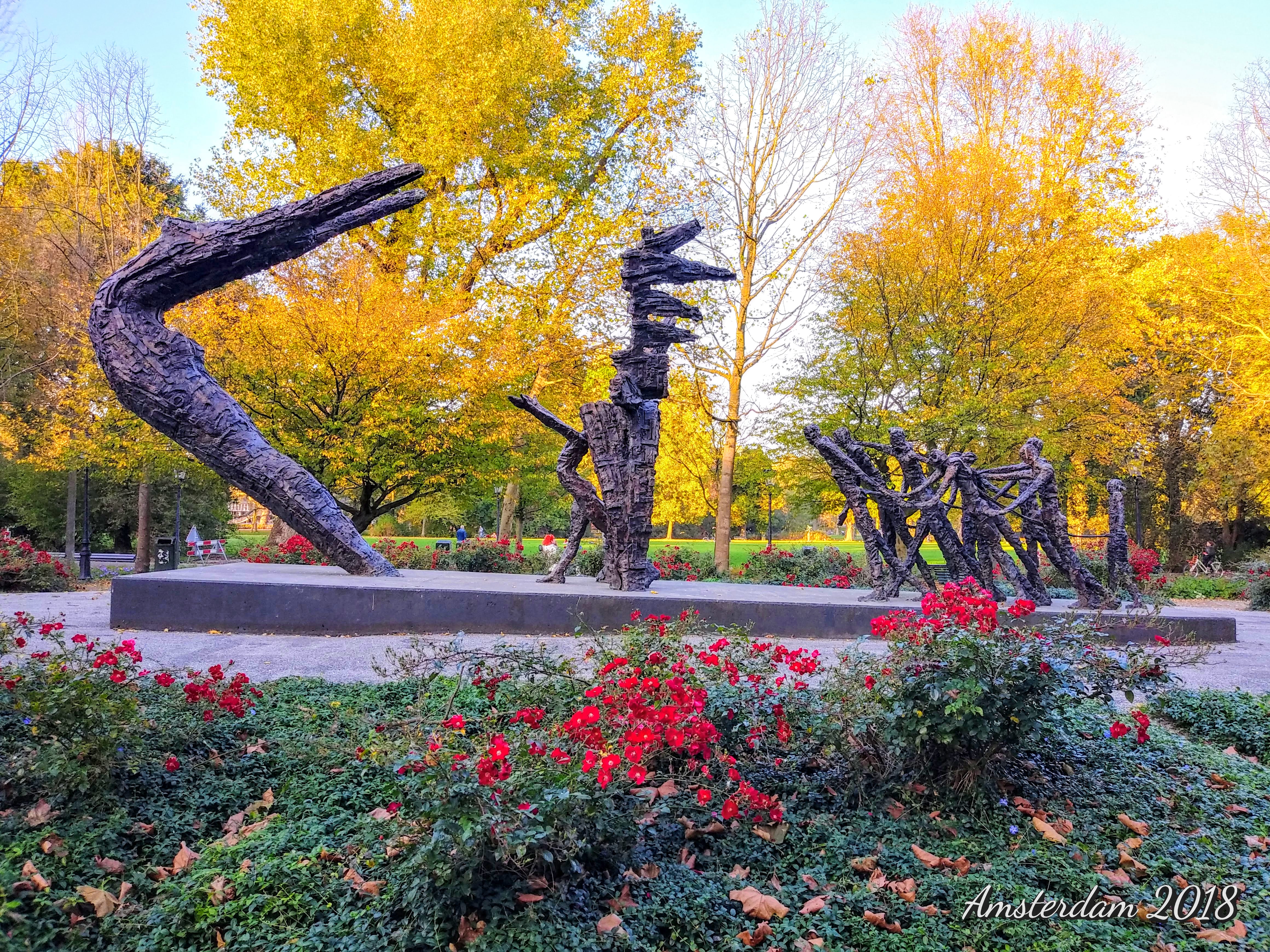
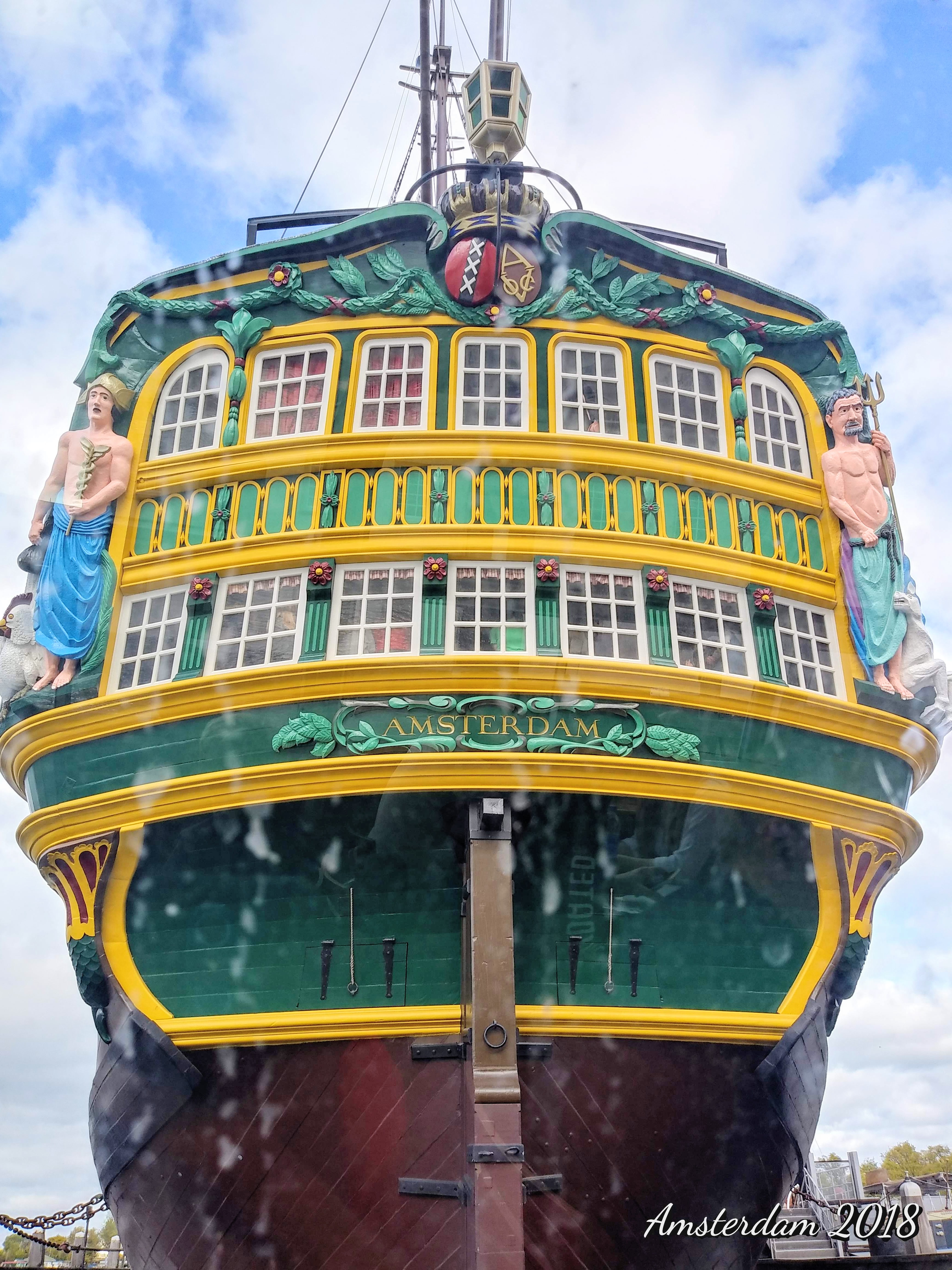
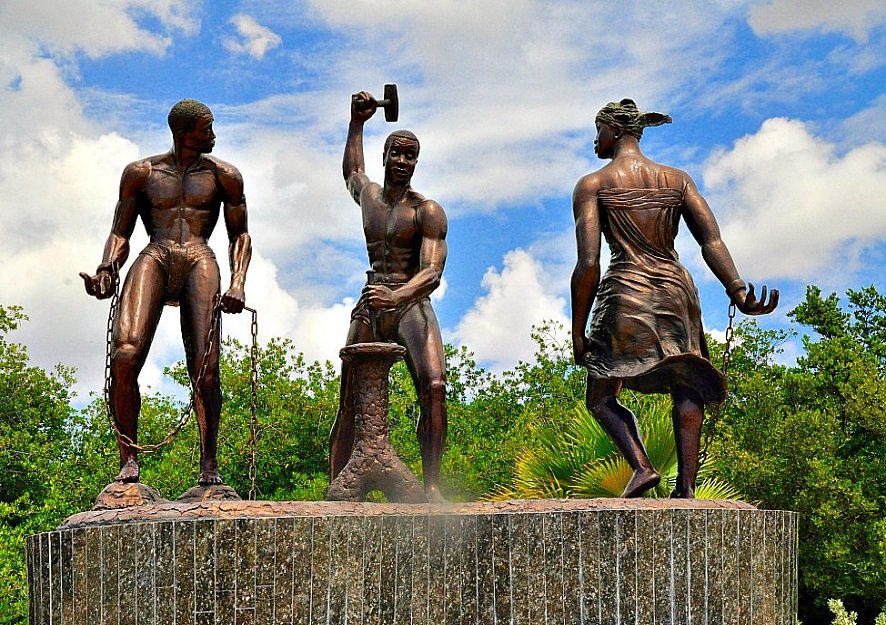
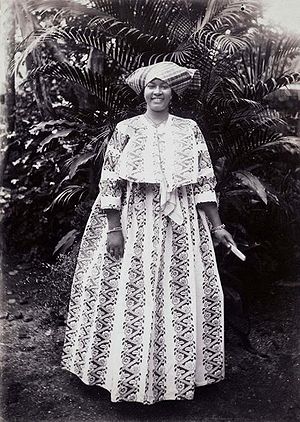

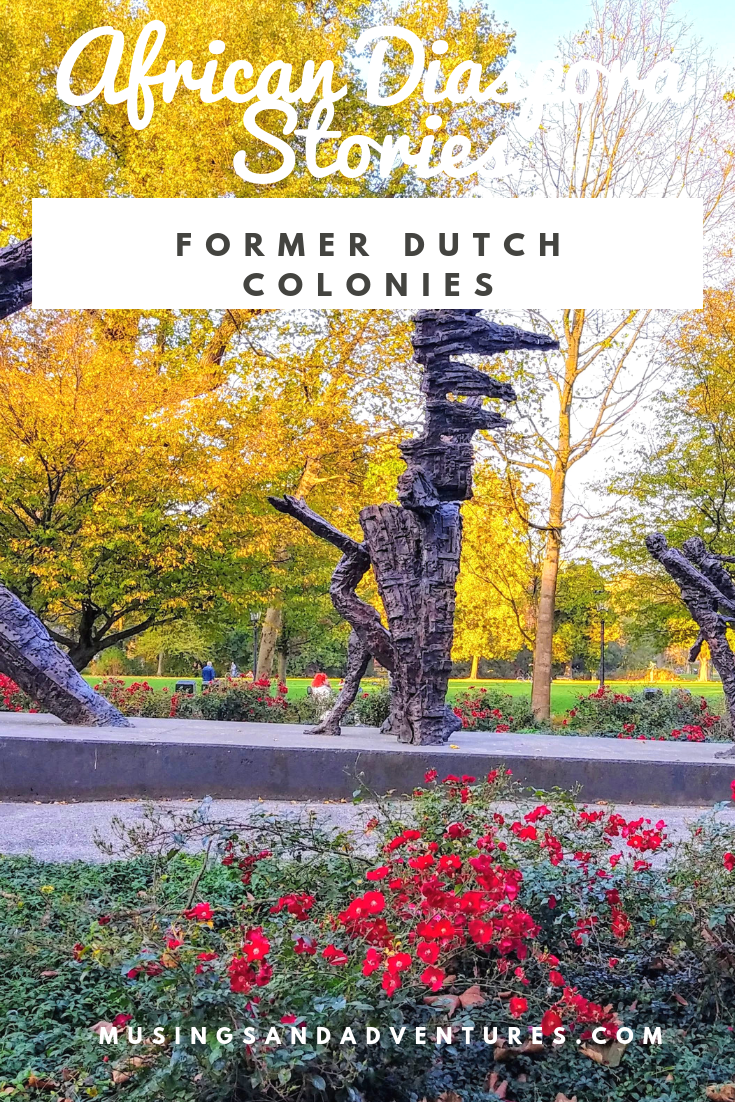
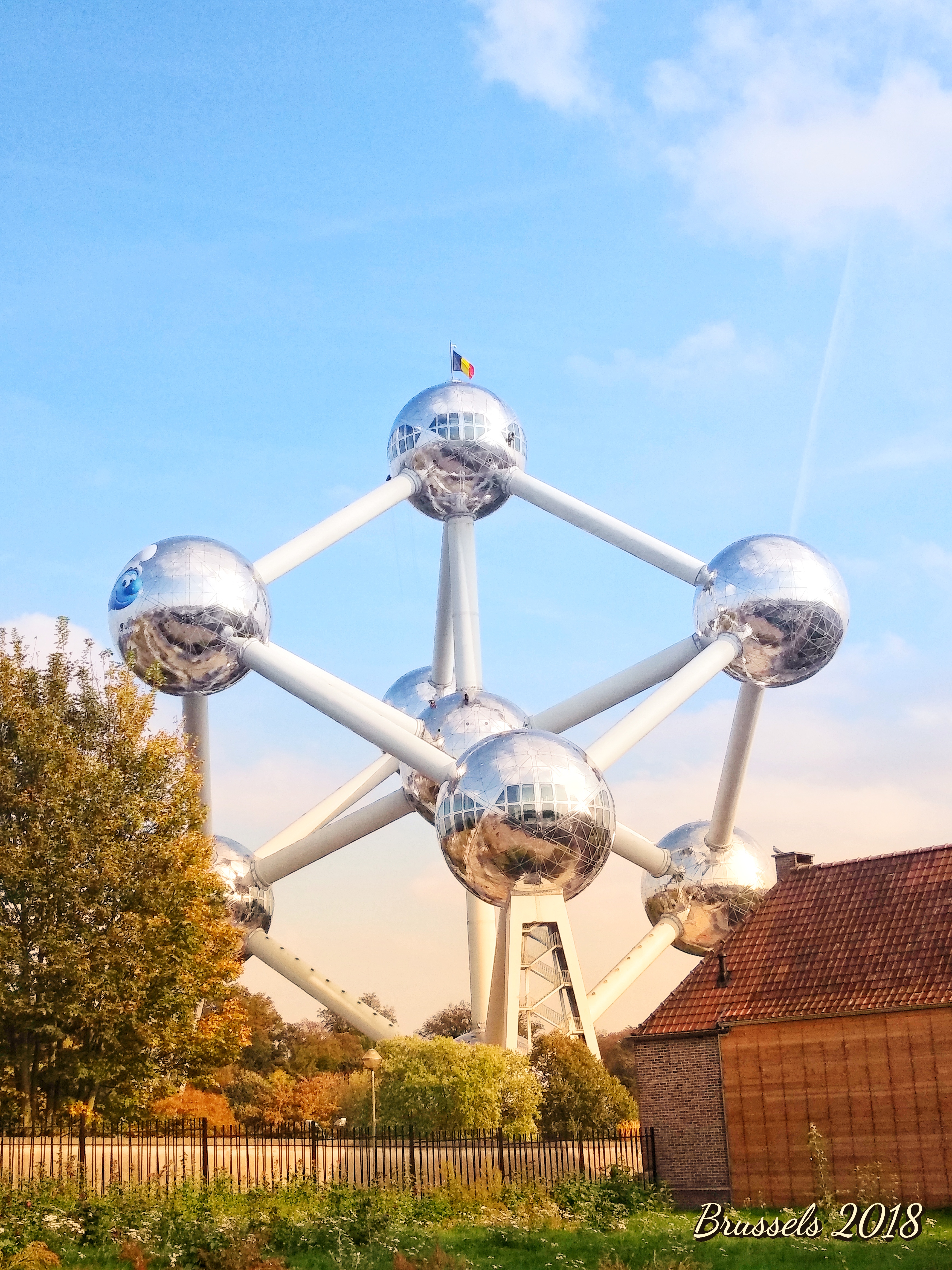
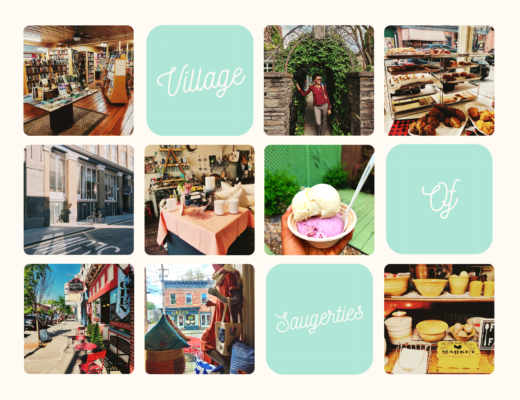
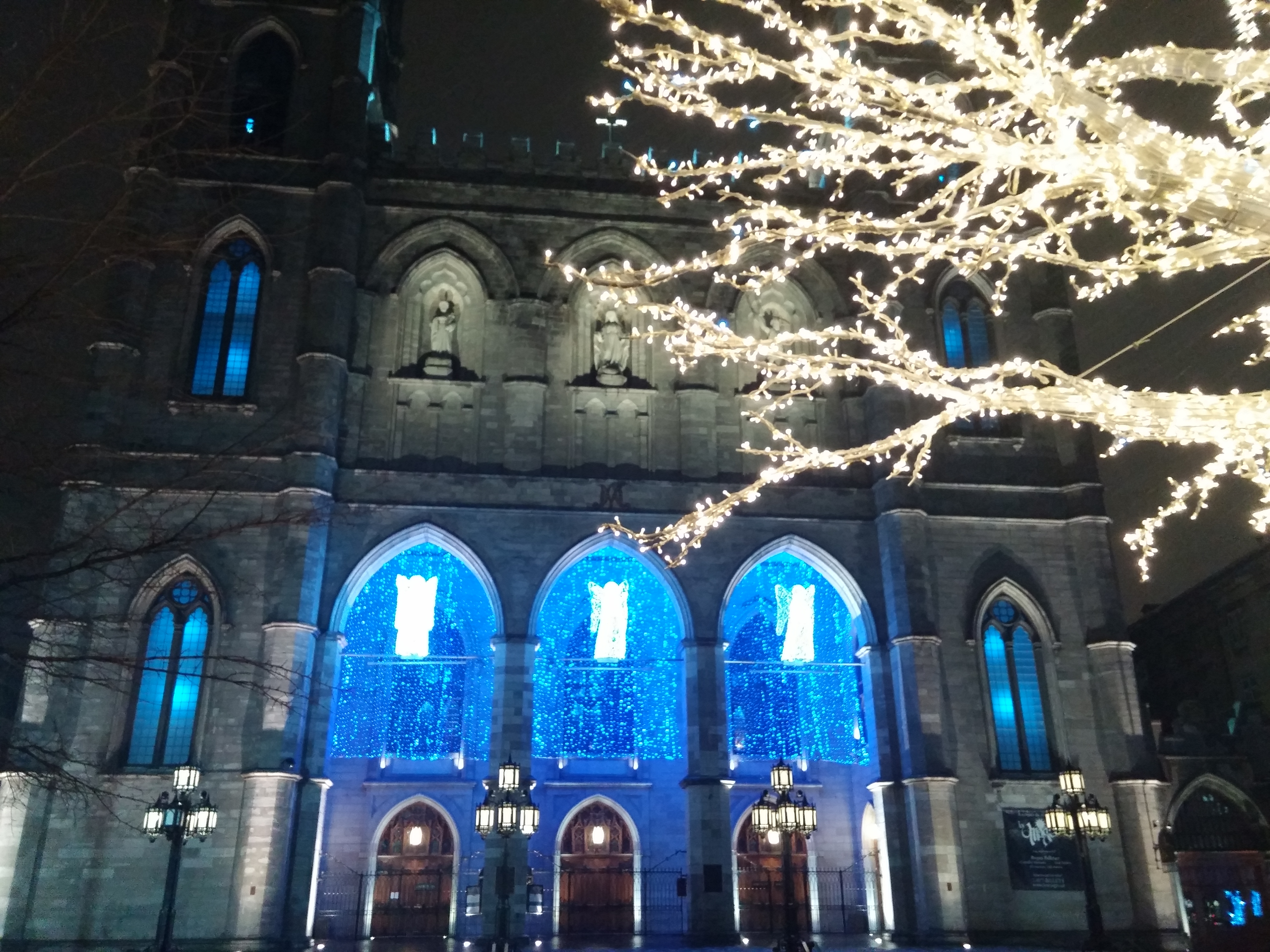

81 Comments
Diana
February 7, 2019 at 12:17 amYour post is so informative. So much history I didn’t know about. How did I not know that Curacao was part of the Netherland Antilles? I’ve only visited Amsterdam once when I was younger but would definitely like to revisit it.
admin
February 7, 2019 at 1:11 amI’m so glad you enjoyed it. I’ve never been to those islands either but now, I really want to. I’m definitely revisiting Amsterdam because there is so much to experience.
Elizabeth
February 8, 2019 at 7:00 pmWow! Just wow! I knew a lot of these countries were connected going way back, but I had no idea how- or what it all meant. Fantastic post. Going to save it to read parts of it with our boys- they love history and connecting historical things to the present day so there’s some info in here that I think can start some great conversations for us as a family!
admin
February 8, 2019 at 7:40 pmThank you so much, Elizabeth! These are hard but important convos to have with children and I’m even learning a lot of these myself with my interest in history and culture.
Sippin Gypsy
February 8, 2019 at 8:49 pmI appreciate that you have brought the histories together of the Dutch and African Slaves, too often certain historic evidence is buried to celebrate only the brighter and more philanthropic things a nation wants to advertise. Thank you for compiling these accounts! I look forward to reading more!
admin
February 9, 2019 at 12:27 amThank you for appreciating them! xx
Sydney
February 8, 2019 at 11:28 pmWhat an interesting post! I’m not going to lie – I hadn’t heard of most of the things you discussed. It’s always so interesting to learn more about the history and culture of the places I’ve visited.
admin
February 9, 2019 at 12:24 amIt really is! I didn’t know most of these stories either too and suddenly, things started to click.
alison
February 9, 2019 at 12:50 amA wonderful and eye opening read. It’s unbelievable how much history is left out of learning or skewed in school. Thank you for informing me of this important and yet painful past. I know the Dutch came to Delaware, USA in the 1600’s it would be interesting to learn if they too had brought enslaved people with them.
admin
February 9, 2019 at 2:59 amIt is said that when the Dutch came in the 1600s, the first Africans they brought were from present-day Congo region and they came to NYC. Two women and like, ten men, or thereabouts. Delaware? Maybe…seeing as the Dutch went into upstate NY and the Philly region. Delaware ain’t too far from Philly. Thanks for this. My research continues!
Arunima Dey
February 9, 2019 at 2:33 amOkay, let’s get serious. I am an academic working on South Asian gender studies, and the topic of ‘race’ is rather important for my field. So, I have spend many years working on race studies, and can I say here with pretty good authority that this is worthy of publication in academic journal. Nonetheless, given how much more accessible blog are to the public than some high-brow pretentious journal, I am extremely happy you published it on your blog. It was an incredible read, and I am saving it to use in my class.
admin
February 9, 2019 at 2:56 amYou are a darling, Arunima! Thank you so much for your genuine support! I will be doing more of these unique type of stories where I can because I’ve always been interested in them. I know the British and their deeds- oh, do I know of them! – but I honestly knew nothing about the Dutch outside of South African history so this was a learning experience for me as well.
Alex Trembath
February 9, 2019 at 8:39 amI knew very little about this history and so was fascinating to read this. Such an informative write-up and it really comes across that you are not only very knowledgeable about the history but also passionate about it too. Great work.
admin
February 10, 2019 at 2:33 amThanks Alex. I am passionate about history and culture. I don’t do it as a career now but glad that I can incorporate it in my travel stories too.
WithCaitlyn
February 9, 2019 at 11:59 amI am from Holland and we really have every nationality in the country. I love visiting the Tropenmuseum. Great to hear that you liked it!
admin
February 10, 2019 at 2:32 amI LOVED Holland! I think that was my favourite museum to visit in my 48 hour stay. Such a tiny country but chockful of history and culture.
Nina Out and About
February 12, 2019 at 7:49 amThis is such a fascinating read. I don’t remember hearing anything about the slave trade when I went to Amsterdam, but I never did a canal tour or went to a museum that wasn’t art focused. I’m so glad I learned so much about it here!
admin
February 12, 2019 at 11:21 pmMost Americans don’t think of non-Anglophone western countries when it comes to the slave trade but the Netherlands were very key players in the human trade.
Julie
February 12, 2019 at 2:29 pmSuch an insightful and well-written post, about such an important part of history. I had some idea of the Dutch colonization history, but not to this extent.
aisasami
February 17, 2019 at 11:19 amThis is an interesting read because I didn’t know a lot about the African diaspora in former Netherland colonies. One of my friends is from Curacao and she is teaching me Papiamentu little by little.
admin
February 17, 2019 at 10:44 pmNice!!! Ask her about the history and tambu, if she knows, that is. It’s great to have friends from all over.
fashionandstylepolice
February 17, 2019 at 3:53 pmInteresting information here. I love reading about history. I have never been to this part of the world before.
admin
February 17, 2019 at 10:42 pmMe neither. I guess now I have to visit Suriname and the ABC Islands.
Adam Townsend
February 17, 2019 at 5:36 pmReally interesting, extremely informative post! I had no idea about any of this, really, so I really enjoyed going through it!
admin
February 17, 2019 at 10:41 pmI’m glad you liked it, Adam. It is knowledge to be known.
Gill Trotman
February 17, 2019 at 8:40 pmVery informative post with an incredible amount of history. Great photos also! Thank you for sharing. Definitely going to share this with a few friends if you don’t mind!
admin
February 17, 2019 at 10:40 pmThanks Gill! Of course, please. Go ahead and share. Knowledge is for all and this is knowledge for all generations. Thanks for reading.
Christopher Mitchell
February 18, 2019 at 5:00 pmThis was incredibly fascinating. Thanks so much for all the hard work you put into this post!
admin
February 19, 2019 at 2:05 amThanks Chris! Glad you enjoyed it.
Helen Neale
February 19, 2019 at 3:37 amThank you for sharing such an informative post. So glad to learn about the history of the Netherland.
Kayla Moreno
February 19, 2019 at 7:13 amWow! This is such an interesting read! I didn’t know any of this. We’re heading to Netherland in a couple months
admin
February 21, 2019 at 2:04 amAmsterdam is so chill, walkable and easy to navigate. Plus, the history of the Netherlands is amazing when you realize that such a tiny country had such great impact o the entire globe.
Jean
February 19, 2019 at 7:42 pmThank you for such an incredibly informative post! I’ve never visited myself but it’s definitely on my bucket list
Elizabeth O
February 21, 2019 at 7:57 amThank you for sharing such an informative post. I really had no clue and through this post I got so many knowledge today.
Grace Charrier
February 21, 2019 at 5:59 pmAs usual! Very interesting read and beautiful pictures! We learn everyday!
Bravo! It really should be in an academic journal as suggested!
Think about it!
👏🏾👏🏾👏🏾
admin
February 22, 2019 at 2:34 amLol. Thanks. Alas, I’m not in academia so that’s a dream. xx
Ritu Sharma
April 4, 2019 at 10:06 amThis place would be a dream for me to go!! so waiting for my next trip!!
Elizabeth | Tired Mom Supermom
April 4, 2019 at 9:17 pmThis is a really cool post. so much to learn! Wow! Just blew my mind.
Kristine Nicole Alessandra
April 4, 2019 at 9:37 pmI have learned so much today just by reading your post. I knew about African slavery but it was with US History. I did not know about this at all. How informative! I will share this post with my husband. He is a history buff and he would be happy to know I learned a bit of world history today.
alexandra cook
July 27, 2019 at 11:34 amalways love reading or listening to stories about cultures/ history of other countries, got a great read thank u 🙂
admin
July 28, 2019 at 5:14 amGlad you enjoyed reading it. I love history/culture myself.
Clarice
July 27, 2019 at 4:35 pmWell, this is interesting. I also know nothing about the African diaspora so, I am happy to learn something new today. Thank you so much for sharing.
Serena
July 27, 2019 at 9:21 pmGreat post! Just makes me want to travel and see everything I can! Inspired! Thanks for sharing.
Viano Dee
July 27, 2019 at 9:54 pmWow! This is a lot of history here. I didn’t know so many things until now. I can’t even believe that the Dutch were responsible for apartheid. Nice post
admin
July 28, 2019 at 5:10 amYup. Everyone knows that. The Boers (White South Africans) are Dutch descendants and began that nonsense.
Michele Dennis
July 29, 2019 at 4:52 pmWow, this was a really great read! Well written, very informative and full of so much history.
admin
August 1, 2019 at 4:35 amThanks Michele. I really enjoyed discovering and researching on African history here.
Ewuzie Kingsley
July 29, 2019 at 9:37 pmWhat a captivating and informative post. came across a documentary about this few days ago but wast able to follow it because of my appointment but decided to to a little research. this is one of the reason i want to study black history and and African history, there are so much hidden away that we need to learn. ..
admin
August 1, 2019 at 4:34 amYes Kingsley. I love learning Black/African history everywhere I go because we are everywhere!
Kristine Nicole Alessandra
July 29, 2019 at 10:10 pmThere are so many new things I learned by reading your post. You detailed it very well that I was able to understand this part of world history. I will save this post and let my husband read it later. He is such a history buff and I am sure he will be up and about discussing this topic more.
admin
August 1, 2019 at 4:33 amThanks Kristine! I love history as well and I learnt a lot of new things in Amsterdam regarding their colonial history.
Liz Bayardelle
August 1, 2019 at 4:07 pmThis is such amazing information. I’m always surprised to learn the history of these places I thought I knew about. Great post!
admin
August 1, 2019 at 9:45 pmThanks Liz. Glad you learnt something new cos I most certainly did.
Marjie Mare
September 24, 2019 at 1:19 amI always love to read about culture, places, and countries. Thank you for sharing this informative post rich in culture and history.
admin
September 29, 2019 at 3:04 amThanks Marjie.
Lori Bosworth
September 24, 2019 at 1:14 pmYes, it’s hard to believe that the Dutch were involved only in the transport of enslaves Africans! It sounds like the marketing team for the canal tour cruise created this untruthful message! Great article!
Viano Dee
September 24, 2019 at 9:57 pmThis is a very interesting read with so much history. It’s so sad to know how evil humans can be. The article says a lot about betrayal and the will to survive. Great post.
Paula Stewart
September 25, 2019 at 1:33 amI am familiar with the history of slavery here in the United States but did not know anything about it in the Netherlands. What an interesting and educational article to read.
admin
September 29, 2019 at 3:03 amMany Americans forget that the Dutch, French, Spaniards and Brits were heavy into African slavery. New Yorkers know that the Dutch once colonized our city and brought the first batch of enslaved Africans to the New World.
Tanya
September 25, 2019 at 1:49 amVery insightful! I’ve been wanting to take another global trip, perhaps a Dutch speaking cou try should be next!
admin
September 29, 2019 at 3:02 amIt should be! The history to be learnt is a lot.
Samantha Donnelly
September 25, 2019 at 11:22 amI have always loved history and findng out new things about different places, eras etc, I never knew this and found it really interesting thank you for sharing
TeamRyce
September 25, 2019 at 9:24 pmsooo nice, this is very informative, a history in a glimpse, very nice writing about this.
Melanie williams
September 26, 2019 at 10:12 amWow so much to learn here. this is a fab post packed with information and history too xx
admin
September 29, 2019 at 3:01 amThanks Melanie. Glad you enjoyed it.
Clarice
September 26, 2019 at 7:41 pmHaha! Totally relate though I try to spot fellow Filipinos whenever we travel abroad.
Thank you for sharing about the African diaspora. I learned something new today and it is very interesting.
admin
September 29, 2019 at 3:00 amI’m sure everyone does it too lol. I’m glad you learnt something new, Clarice.
Charlotte Petit Noble
May 12, 2020 at 5:48 pmAlways super interesting to read your posts. Your posts are always well written and make me learn something new. I am grateful I could join your tribe here. Thank you for sharing
admin
May 12, 2020 at 10:44 pmAwww thanks a mil for this, Charlotte. Much appreciated! xx
Cristina
May 13, 2020 at 8:09 amSuch an interesting article full of information. I’ve never visited Amsterdam but I’m planning on doing so. I am sure that I’ll be looking for the African diaspora signs after reading this.
Monidipa
May 12, 2020 at 6:03 pmI really like history and it was really interesting to know about their work. I will love to know more about them.
Karla
May 13, 2020 at 8:44 amI keep on learning new things whenever I visit your blog. I’ve been seeing some old pictures of women wearing koto and angisa. I didn’t know that it has that purpose.
admin
May 18, 2020 at 12:42 amThanks Karla!
Brittany Nicole
May 13, 2020 at 7:51 pmWow, I hadn’t realized the Dutch played such a role in colonization of Africa. This was super interesting and informative, thanks for sharing!!
admin
May 18, 2020 at 12:45 amYes, Brittany. South Africa’s colonial history is a well documented one the Dutch played a huge part in.
Di
May 13, 2020 at 8:36 pmWow such rich history. Amazing how so many places and cultures are intertwined. I am the same, always look for the history whenever I visit somewhere new, so much to learn.
admin
May 18, 2020 at 12:44 amAlways something new to learn in a place and yes, we’re all intertwined even though it may not seem so at times with the state of the world. Thanks for reading! x
Lyosha
May 14, 2020 at 8:33 amvery interesting post! I did know about quite a number of people from Africa in Netherlands but I didn’t know more than just a fact. very curious!
bethan taylor-swaine
May 14, 2020 at 9:37 amThis is absolutely fascinating! I knew a little about the links between Africa and The Netherlands having lived in Southern Africa for a number of years, but I’d never explored it to this level. Thank you so much for putting this together and sharing it! x
admin
May 18, 2020 at 12:43 amThanks Bethan xx. South Africa has its own very horrid Dutch history too.
Kristine Nicole Alessandra
May 14, 2020 at 12:46 pmVery informative and well researched. I always like having some new learning everyday. This post about the African Diaspora in Netherlands really spiked my interest. I want to read more about the topic.